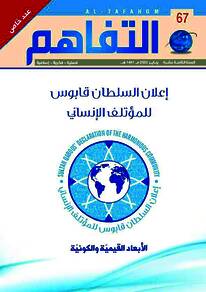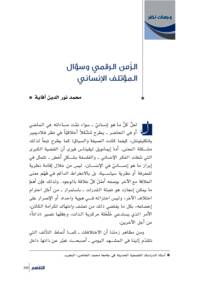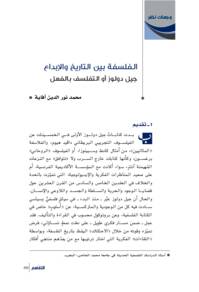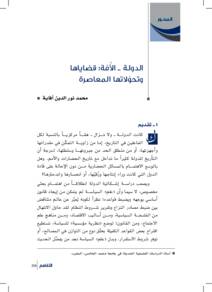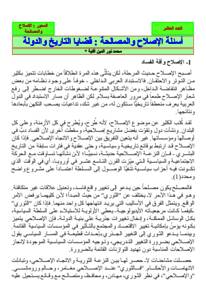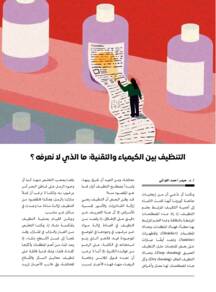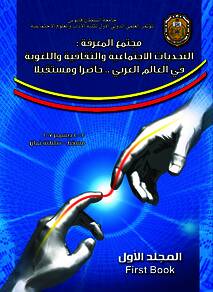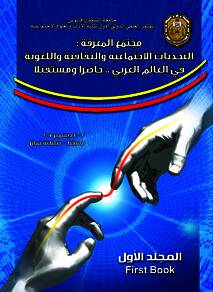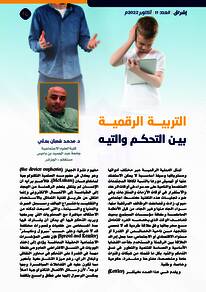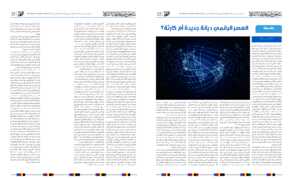Document
الزمن الرقمي وسؤال المؤتلف الإنساني.
Publisher
وزارة الأوقاف والشؤون الدينية.
Gregorian
2020-01
Language
Arabic
English abstract
Perhaps everything that is human - whether it is questioned in the past or in the present - raises a moral problem in the view of Vladimir Yanklevich, whatever the formula and context, and accordingly raises the problem of the meaning. As for Emmanuel Levinas, he believes that the major issue that occupied human thought - and philosophy in particular - is represented in highlighting what is human in man, not through the establishment of a theory of knowledge or a political theory, but rather by constantly engaging in understanding the meaning of the other as the origin of every relationship to existence. Therefore, the most important thing that can be accomplished is mobilizing capacities - constantly - in order to respect the difference of the other, and not reduce it to one identity, or insist on subjecting it to all that entails in terms of arbitrariness and violation of the dignity of the being, which calls for a dislocation of the centrality of the self, and making it become a "subject" of others sake.
Member of
Resource URL
Arabic abstract
لعل كل ما هو إنسانيّ - سواء تمّت مساءلته في الماضي أو في الحاضر - يطرح مُشكلاً أخلاقياً في نظر فلاديمير يانكليفيتش، كيفما كانت الصيغة والسياق كما يطرح تبعاً لذلك مشكلة المعني. أما إيمانويل ليفيناس فيرى أن القضية الكبرى التي شغلت الفكر الإنساني - والفلسفة بشكل أخص - تتمثل في إبراز ما هو إنسانيّ في الإنسان ليس من خلال إقامة نظرية للمعرفة أو نظرية سياسية، بل بالانخراط الدائم في فهم معنى الآخر بوصفه أصْلَ كلّ علاقة بالوجود. ولذلك فإن أهم ما يمكن إنجازه هو تعبئة القدرات - باستمرار - من أجل احترام اختلاف الآخر، وليس اختزاله في هوية واحدة، أو الإصرار على إخضاعه بكل ما يقتضي ذلك من تعسّف وانتهاك لكرامة الكائن الأمر الذي يستدعي خَلْخَلة مركزية الذات، وجَعلَها تصير «ذاتاً» من أجل الآخرين.
Category
Journal articles

